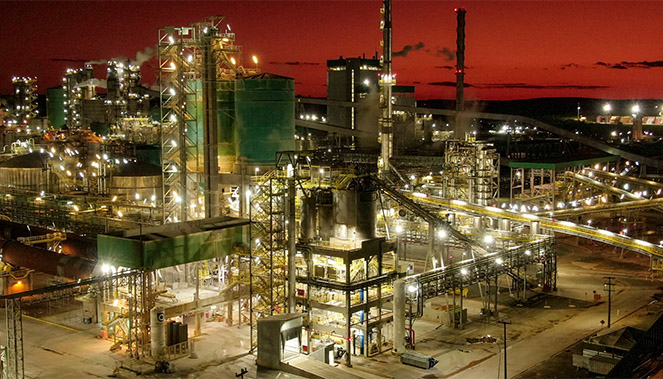Climate change agenda
GHG: acronym for greenhouse gases. These gases are those that absorb part of the sun’s rays and redistribute them in the form of radiation in the atmosphere, heating the planet in a phenomenon called the greenhouse effect. Carbon Dioxide (CO2); methane (CH4); hydrofluorocarbons (HFCs) and perfluorocarbons (PFCs) used in aerosols and refrigerators are examples.
SEE GLOSSARYCircular economy: concept that associates economic development with a better use of natural resources, which are no longer only exploited and/or discarded, but reused in a new cycle. Thus, everything that is extracted from nature is reintegrated into the ecosystem without generating liabilities.
SEE GLOSSARY
4.9 million tons of CO2 eq is Klabin’s positive carbon balance in 2021.

Planted forests are renewable natural resources that absorb greenhouse gases from the environment.

An average of 84 trees per minute are planted at Klabin.
Commitments to the public agenda
Klabin shares its experiences about the benefits of including sustainability among its business strategies. This helps to engage more companies in this cause, which belongs to the entire planet, contributing to the sustainable future that everyone so desires. The adhesion to external initiatives reinforces this positioning.

Certifications attest commitment
In 2021, Klabin received the FSC® (FSC-C023492) certification that attest to the conservation or restoration of ecosystem services – biodiversity conservation, carbon sequestration and storage, and watershed services – after an audit conducted by the Institute for Agricultural and Forest Management and Certification (Imaflora) at Fazenda das Nascentes, located in the Serra da Farofa Complex RPPN in Santa Catarina.
Thus, the Company became the first in the country to achieve these three seals simultaneously. To obtain the certifications, the following commitments were made: diagnose, monitor and maintain the region's biodiversity; protect the areas from illegal hunting and fishing; maintain the carbon sequestration and storage of the native areas; protect them from fire, deforestation and degradation; maintain the quality and availability of water resources and continuously increase knowledge about the topics involving the conservation or restoration of the ecosystem services.
Participation in COP-26
Since Eco-92 in Rio de Janeiro, Klabin has been actively participating in environmental conferences, in which it has been a benchmark for its good practices in the conservation of native forests and springs, and for its forest management model.
The historical commitment to the topic and the various initiatives joined in recent years have caused Klabin to stand out and be invited to join the Business Leaders Group of the 26th UN Conference of the Parties, COP-26. The group was responsible for spreading the debate about climate change and engaging the private sector in the discussion about ways to mitigate it, in addition to dealing with the agendas of COP-26, held in Glasgow, Scotland.
Represented by its directors, Klabin took part in discussions with the main global leaders, deepening the reflection on the topic and, even before the event, participated in an agenda to mobilize other players and accelerate the private sector's commitment to a carbon-neutral economy.
Investments in low-carbon technologies
Klabin has a history of investing in low-carbon technologies. This allowed for a reduction of 67% to be attained between 2003 and 2021 in the emissions of CO2 equivalent per ton of product in its operations.
Using the Marginal Abatement Cost Curve (MACC) tool, it is possible to safely and accurately assess the effectiveness of the technologies used and the necessary investment, thus reaching the calculation of indicators related to CO2 emissions.
Biomass gasification plant in operation at the Puma Unit













